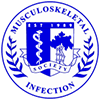Author(s): Fereidoon Jaberi*, Elie Ghanem, Aidin Eslam Pour, Peter F. Sharkey, Javad Parvizi, James J Purtill; Rothman Institute, Philadelphia, PA
Title: Wound Drainage following Total Joint Arthroplasty: How Long is Long Enough?
Purpose: Wound drainage following TJA is not uncommon. It is known that wound drainage predisposes patients to periprosthetic infection (PPI). Hence, the dilemma faced by orthopedic surgeons is when to surgically intervene in order to prevent it.
Methods: A consecutive series of 7,153 patients undergoing TJA between 2000 to 2006 at our institution were recruited. 83 patients in this group had persistent drainage, being defined as copious drainage beyond 48 hours postoperatively, who underwent I&D. detailed data on these patients were collected. Cox regression analysis was performed to examine the influence of various factors on the failure of I&D, being defined as development of PPI that required further intervention.
Results: I&D was successful in treating persistent drainage in 64 patients (77%). 19 patients required further surgical intervention. Delay in surgical intervention beyond 7 days was a significant risk factor for failure of I&D (p = 0.03). The intraoperative cultures were positive for an organism (s) during I&D in 56 (67%) of patients. In the success-outcome group there were 16 (84%) patients with positive culture and 6 (31%) patients with a methicillin- resistant organism. In the failure-outcome group there were 40 (62%) patients with a positive intraoperative culture and 17 (27%) patients with a methicillin resistant organism.
Discussion: The findings of this study suggests that there appears to be a ¡¥golden period¡¦ of 7 days beyond which intervention for persistent wound drainage appears to be less effective. We recommend close observation and early intervention for patients with persistent wound drainage. Oral antibiotic appears to be an ineffective treatment modality for wound drainage based on the presence of positive intraoperative cultures in patients being treated by oral antibiotics.

